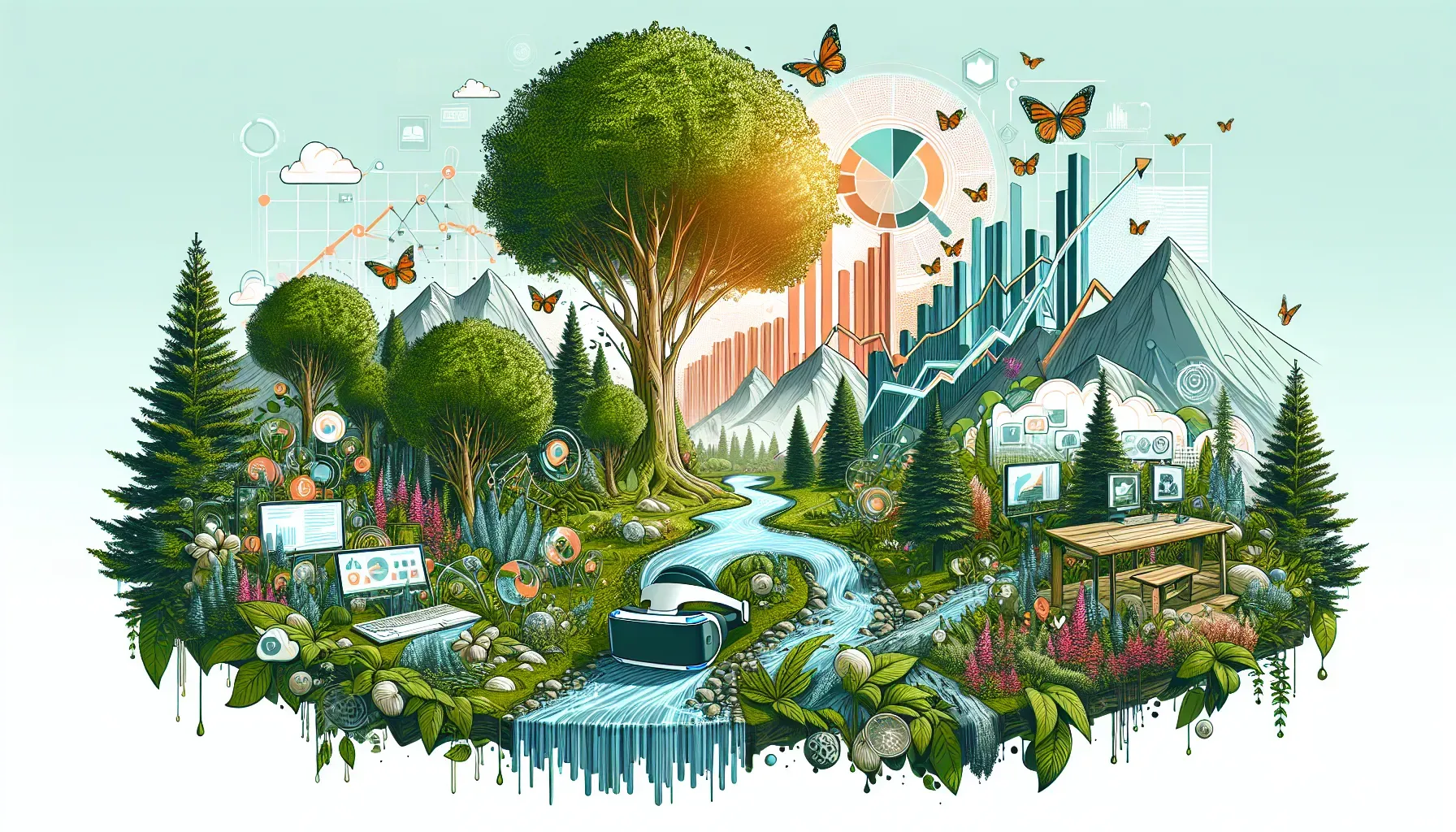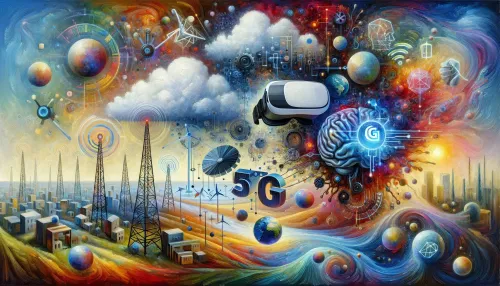The Evolution of Virtual Reality in Digital Marketing: Revolutionizing Customer Engagement

The Impact of Virtual Reality on Digital Marketing
Virtual Reality (VR) has reshaped the digital marketing landscape, opening up new avenues for brands to captivate audiences and drive meaningful interactions. As we delve into the profound impact of VR on digital marketing, we uncover its role in enhancing brand stories, expanding audience reach, analyzing consumer behaviors, bridging digital and physical interactions, crafting interactive product demonstrations, fueling e-commerce platforms, and harnessing emotional connections through immersive brand experiences.
In an era characterized by fleeting attention spans, brand storytelling becomes a potent tool for capturing consumer interest. VR technology empowers marketers to transcend traditional narrative limitations by immersing audiences in captivating, lifelike environments. By leveraging interactive storytelling in VR, brands can emotionally resonate with their audience, forging deep connections that endure long after the experience concludes.
Enhancing Brand Stories with Immersive Experiences
Digital marketing thrives on reaching diverse audiences across various channels. VR-driven campaigns have emerged as a novel strategy to broaden the scope of audience engagement. By offering unique, memorable experiences through VR content, marketers can attract and retain the attention of tech-savvy demographics while cultivating a distinct brand identity within the competitive digital sphere.
Related Article: Emerging Trends in Digital Mental Health Advocacy on a Global Scale
Expanding Audience Reach through VR-Driven Campaigns
Understanding consumer behavior is integral to crafting targeted marketing initiatives. Through VR technology, marketers gain access to invaluable insights into user interactions within simulated environments. By analyzing how users navigate and engage with VR content, brands can refine their marketing strategies based on real-time behavioral data.
Analyzing Consumer Behaviors in Virtual Environments
The integration of virtual reality blurs the demarcation between digital and physical realms, fostering seamless interactions that transcend conventional boundaries. By deploying VR experiences that stimulate sensory perceptions, brands can transcend geographical constraints and enable users to engage with products and services in innovative ways.
Traditional product demonstrations often lack the immersive appeal necessary for consumers to fully comprehend a product's value proposition. VR technology revolutionizes this paradigm by enabling brands to create realistic simulations wherein users actively participate in product experiences. Such interactive demonstrations not only elevate user engagement but also empower consumers to make informed purchasing decisions.
Related Article: AI-Powered Email Marketing Platforms and Behavioral Analysis Experts Drive Personalization to New Heights
Bridging the Gap Between Digital and Physical Interactions
E-commerce platforms continually seek innovative methods to replicate physical shopping experiences in virtual environments. VR offers a solution by enabling consumers to virtually explore products and interact with them in simulated retail settings. This heightened level of immersion enhances the online shopping experience, mitigating uncertainties associated with purchasing products sight-unseen.
Crafting Interactive Product Demonstrations for Enhanced User Experiences
The art of storytelling lies at the heart of effective marketing communications. With VR technology, marketers can transcend conventional storytelling techniques by immersing audiences in narratives that unfold within meticulously crafted virtual environments. This experiential form of storytelling captivates users on a visceral level, fostering authentic connections that resonate long after initial engagement.
Related Article: Video Streaming Platforms and Interactive Advertising Agencies Join Forces: Redefining Brand Engagement Stories
Exploring Virtual Reality's Impact on E-commerce Platforms
Emotions wield substantial influence over consumer behaviors and purchasing decisions. VR presents a unique opportunity for brands to evoke powerful emotional responses by creating immersive brand experiences that resonate deeply with users. Whether simulating real-world scenarios or transporting users to fantastical realms, immersive brand experiences crafted through VR have the potential to foster enduring emotional connections with audiences.
The evolution of virtual reality in digital marketing marks an era where brands possess unparalleled capabilities to engage and inspire audiences through immersive experiences that transcend traditional boundaries.
Frequently Asked Questions
Virtual reality enhances brand storytelling by immersing audiences in lifelike environments, allowing for interactive narratives that captivate attention. This immersive experience fosters emotional connections, enabling brands to resonate deeply with consumers and create lasting impressions beyond the initial engagement.
VR technology provides marketers with valuable insights into consumer behaviors by simulating environments where users interact with content. By observing how users navigate these virtual spaces, brands can gather real-time data to refine their marketing strategies and better target their audiences.
Yes, virtual reality significantly enhances e-commerce experiences by allowing consumers to explore products in simulated retail settings. This immersive interaction helps mitigate uncertainties associated with online shopping, enabling customers to make more informed purchasing decisions while enjoying a more engaging shopping experience.
Check Out These Related Articles

Accessible Innovation: Pioneering Solutions for Universal Interaction in Digital Marketing

Community Impact: Unveiling Digital Marketing's Transformative Role in Local Initiatives

Green Marketing: Nurturing Sustainable Practices in the Digital Domain

